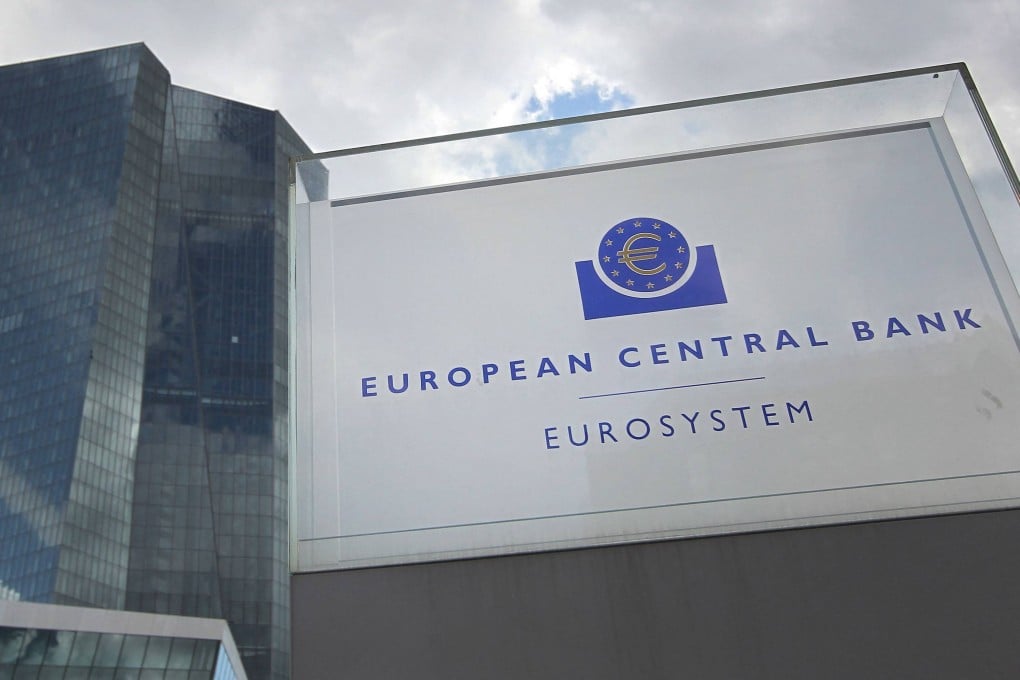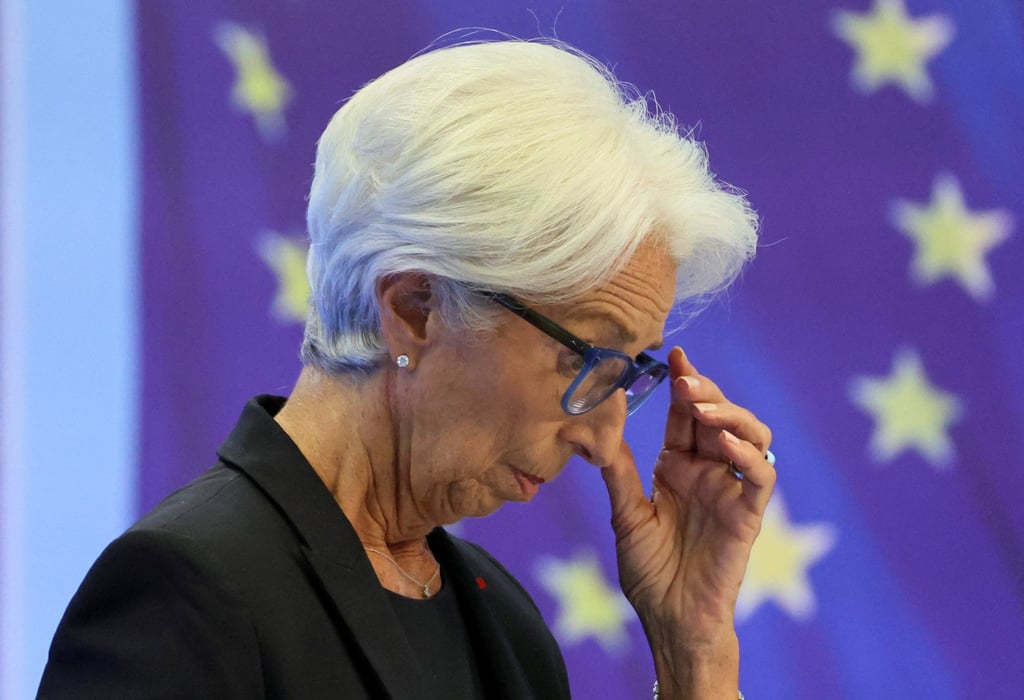ECB surprises with aggressive hike, first since 2011, to end the era of negative interest rates in eurozone
- ECB’s deposit facility will rise to zero per cent, out of the negative territory for the first time in eight years
- Risk of recession later this year may ‘wash away’ some of the potential increases, ING Bank analyst says

The decision lifted its deposit facility, the rate paid by banks to park their cash at the ECB overnight, to zero percent and out of negative territory for the first time in eight years. Its other key rates rose in lockstep, also by 50 basis points.
The more aggressive move, the ECB’s first rate hike since 2011, reflected an updated “assessment of inflation risks”, the Frankfurt-based institution said on Thursday. Policymakers dumped a previous guidance that it would raise rates by a more modest 25 basis points, saying it would make decisions “meeting-by-meeting.”
Surging energy costs as a consequence of the Russian invasion of Ukraine saw consumer prices in the eurozone rise at an 8.6 percent pace in June, an all-time high for the currency club, and well above the ECB’s target of 2 percent.

Since they were announced in June, the ECB’s plans to raise rates have unleashed new stresses on bond markets, with the relative borrowing costs faced by more highly indebted countries rising quickly.